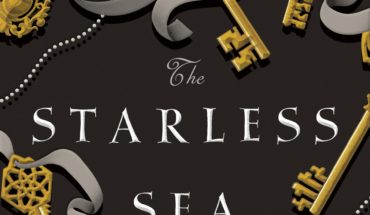(This post originally appeared on Grub Street Daily).
The first book I remember falling in love with was Dealing with Dragons by Patricia C. Wrede. As the title might suggest, it’s a playful YA fantasy novel about a princess who refuses to be proper and runs away to live with dragons.
I read the book twenty-three times.
I know this because our sixth grade English class required us to track our reading. Not surprisingly my teacher politely suggested—at around read-through number twenty-two—that I might want to try to, ah, diversify my reading.
In my writing classes, my obsessive nature became an asset, but my love of fantasy did not. Nearly every workshop I attended in undergraduate and in my MFA program came with the caveat, Write whatever you want EXCEPT GENRE FICTION. I understand my instructors’ reluctance to deal with tales of swordcraft and sorcery. After all, it’s hard enough to get students to tell a coherent story set in “the real world” without adding dragons and basilisks and daemons (oh my!) And to be completely fair, a lot of fantasy published is bad by most writerly standards: hackneyed, formulaic, and, ironically, quite unimaginative.
But when done well, fantasy can be one of the most powerful forms of literature around. Fantasy isn’t afraid to ask the big questions about life and death, honor, friendship, ethics and truth which most postmodern novels only glare at with ironic disdain. Ursula K. LeGuin, for instance, taught me more about anthropology, feminism, and Taoism than any textbook. And judging by sales alone, there’s no lack for readers of the genre. Both powerful and popular, oh my!
I’m sorry, writing teachers, but ignoring the dragon in the room isn’t going to make it go away.
Which brings me to Grub Street. When my Novel in Progress instructor Michelle Hoover suggested that I apply to Grub Street’s new Novel Incubator class, I was working on a literary novel about a neurologist and her patients. A respectable novel. A realistic novel. A completely dragon-free novel. But a novel which could not possibly be done by the deadline to submit to the class.
Lurking in the files of my computer, however, was a shameful little secret novel about a woman with wings living in a world where this is not so unusual, who journeys to a mythic city to learn how to fly. There are swords and there’s magic. There aren’t dragons, but there was no denying that it was in fact (gasp!) a fantasy novel. But it was all I had.
I submitted it and to my amazement was accepted into the pilot program. I wasn’t sure if I was ready for strangers to read it yet, but I knew the program was too good an opportunity to pass up. Actually it was exactly what I’d hoped my MFA program would be but wasn’t: a writing bootcamp, a group of writers as obsessed as I was.
I was nervous while the class read my piece, partly because I had written it quickly and knew it wasn’t my best (it had been lurking around largely unedited for most of its short life) but mainly because it was about a woman with wings (for chrissake). Surely the novel and my dragon-loving self would be laughed out of the room.
But no. Same as they had for every other novel, my instructors and classmates treated my work with respect. They discussed plot, character’s motivations, point of view. There was a serious conversation about how the magic system of the world worked. All the feedback was sincere, and I followed many of the suggestions given in workshop and ended up with a second draft much stronger than the first.
I still have a ways to go before I’ll feel “finished” with the story (as they say, art is never finished, only abandoned), but whatever faults it has now seem within my powers to fix, and I have a whole crowd of other writers I admire to turn to for advice. Anneal, my wing’ed main character, is no longer the bastard child of my imagination.
Fantasy writing, in order to be good, require the same rigorous work as any other writing. Consequently, fantasy writers, in order to be good, require the same rigorous instruction as any other writers.
Why not give it to them?
Once you get the hang of it, it’s really not that hard, dealing with dragons.


